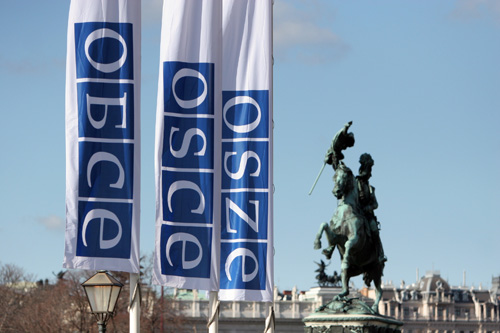Strengthening Democracy: OSCE's Review of the 2022 Italian Parliamentary Elections

In August 2022 the OSCE Office for Democratic Institutions and Human Rights (ODIHR) deployed an Election Assessment Mission (EAM) in relation to the parliamentary elections held on September 25, 2022. These early parliamentary elections were called following the resignation of Prime Minister Mario Draghi after his government lost support from the main coalition parties.
The mission focused on assessing the elections' compliance with OSCE commitments, international standards, and national legislation. The OSCE assessed the 2022 parliamentary elections in Italy as competitive, providing a genuine political choice, and respecting fundamental civil and political rights. The election administration operated professionally and enjoyed high public trust, and the election campaign was conducted in an atmosphere of freedom and pluralism.
Despite the generally positive assessment, the report highlighted several significant challenges. First, the legal framework governing elections is fragmented across various laws and decrees, leading to interpretational inconsistencies and limiting the transparency of procedures. The lack of a unified electoral code, which has been the subject of multiple OSCE recommendations, was also noted.
Second, the inability of independent candidates to run for office is in contradiction with OSCE commitments regarding equal access to participation in political life. Only individuals associated with political parties or coalitions may stand for election, limiting electoral competition. Additionally, the law does not provide for the participation of citizen observers, meaning the electoral process is not fully open to public scrutiny.
Another issue is the insufficient regulation of campaign financing. Although spending limits and reporting requirements exist, the lack of a requirement to publish financial data prior to the elections limits transparency and prevents real-time monitoring of party and candidate expenditures.
The OSCE also noted the continued criminalization of defamation, which is at odds with international standards of freedom of speech and may discourage journalists from pursuing investigative topics. In the context of a high number of threats against journalists and an increasing number of so-called SLAPP (Strategic Lawsuits Against Public Participation) cases, this phenomenon poses a real threat to media freedom.
It is also worth to note that the elections were held in a challenging socio-economic context, with rising energy prices, inflation, and the ongoing effects of the COVID-19 pandemic, which further complicated campaigning, particularly for smaller political actors.
In conclusion, these elections exemplify many positive elements of the democratic process; however, the report highlights areas that require further improvement, particularly in terms of the transparency of electoral procedures and ensuring equal access to participation in political life.

